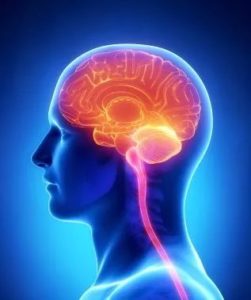 As a neurologist, I’ve reviewed the latest, reliable research literature available. I’ve read up on every aspect of Alzheimer’s disease. I’ve studied the published opinions of a variety of experts, including psychiatrists, epidemiologists, geriatric experts, toxicologists, cardiologists, endocrinologists, and other neurologists, in order to learn all I can about how the Alzheimer’s brain is different from a healthy brain. I’ve assembled all of these pieces to form the most complete picture of the problem possible, linking the factors to the outcomes and allowing us to identify our specific risks of Alzheimer’s disease.
As a neurologist, I’ve reviewed the latest, reliable research literature available. I’ve read up on every aspect of Alzheimer’s disease. I’ve studied the published opinions of a variety of experts, including psychiatrists, epidemiologists, geriatric experts, toxicologists, cardiologists, endocrinologists, and other neurologists, in order to learn all I can about how the Alzheimer’s brain is different from a healthy brain. I’ve assembled all of these pieces to form the most complete picture of the problem possible, linking the factors to the outcomes and allowing us to identify our specific risks of Alzheimer’s disease.
While it used to be thought that Alzheimer’s occurred “randomly” in the elderly population, we now know that the damage associated with Alzheimer’s disease begins decades before any symptoms appear-even while you’re at the top of your game at midlife! I know for a fact that no single approach will solve the problem of Alzheimer’s disease. There’s no one approach that can make you think faster, be more productive, and compete in a youth-oriented society. What is called for is an individualized approach that considers all the personal risk factors of each of us.
To help you determine an individualized approach for you-and your loved ones-I’ve designed the following 25-item questionnaire -Test Your Real Brain Age – that analyzes your risk of Alzheimer’s disease. Once you’ve completed the Test Your Real Brain Age quiz, you can score the quiz.
Testing Your Brain’s Age
Introduction and Instructions for Brain Age Test
Brain Age Questionnaire Test
Results Interpretation for Brain Age Test
Test Your Real Brain Age: The Alzheimer Risk Profile
The best way to approach the Alzheimer’s Risk Profile is to take a piece of paper and to number it from 1 to 25, and then to record your answers (“T” or “F”), so that at the end you can easily compute your Actual Brain Age using the key. After you’ve scored the Alzheimer’s Risk Profile, give the test to family members, friends, and colleagues, and tally their scores.
By following the proven solutions, safe strategies, and self-care recommendations that I teach you in Steps 1 – 4 of the Anti-Alzheimer’s Prescription you can develop a personalized program to dramatically reduce your risk of Alzheimer’s disease. Ultimately, you will greatly improve your quality of life and reduce your risk of many chronic diseases associated with aging.
On the separate sheet of paper, write True or False for each statement below. After you take the test, calculate your score using the scale on the following page. I will continue to address this profile throughout the book and teach you how changing your diet and lifestyle habits will decrease your chances of getting Alzheimer’s disease-give you a more youthful brain and increase your overall health and well-being.
Test Your Brain Age Quiz: True or False:
|
1. I get 7 to 8 hours (or more) of sleep each night |
True | False |
|
2. I eat at least 5 or more servings of fruits and vegetables high in antioxidants daily. |
True | False |
|
3. I eat at least one serving of blueberries, raspberries, or blackberries daily. |
True | False |
|
4. I eat baked or broiled fish high in omega-3 fatty acids (especially eicosapentaenoic acid and docosahexaenoic acid) at least three times a week. |
True | False |
|
5. I take fish oil supplements high in omega-3 fatty acids or flaxseed supplements at least 5 times per week. |
True | False |
|
6. I take folic acid supplementation with my daily multivitamin. |
True | False |
|
7. I take a low-dose of aspirin daily. |
True | False |
|
8. I drink red wine or grape juice at least 5 times a week. |
True | False |
|
9. I exercise most days of the week for at least 30 minutes each time (total of three hours or more of strenuous exercise weekly). |
True | False |
|
10. I read challenging books, do crossword puzzles or Sudoku, or engage in activities that require active learning, memorization, computation, analysis, and problem solving at least five times a week. |
True | False |
|
11. My total cholesterol is less than 200. |
True | False |
|
12. My LDL (“bad”) cholesterol is less than 110. |
True | False |
|
13. I have “longevity genes” in my family, with members who lived to 80 and older without memory loss. |
True | False |
|
14. I am not obese (less than 20 pounds overweight for a woman; less than 30 pounds overweight for a man). |
True | False |
|
15. I eat a Mediterranean style diet (high in fruits, vegetables, whole grains, beans, nuts, and seeds, and olive oil as the source of fat; little red meat). |
True | False |
|
16. I use olive oil and no trans-fat spreads instead of butter or margarine. |
True | False |
|
17. I have never smoked cigarettes. |
True | False |
|
18. I have normal blood pressure. |
True | False |
|
19. I do not have diabetes. |
True | False |
|
20. I do not have metabolic syndrome (high triglycerides, central obesity, and hypertension), also called insulin resistance syndrome. |
True | False |
|
21. I do not have a sleep disorder such as snoring or obstructive sleep apnea or untreated insomnia. |
True | False |
|
22. Daily uncontrolled stress is not a problem for me. |
True | False |
|
23. I have a strong support group and enjoy many activities with friends, colleagues, and family members. |
True | False |
|
24. I have no problems with short- or long-term memory. |
True | False |
|
25. I’m ready to prevent Alzheimer’s and am willing to do whatever it takes. |
True | False |
Brain Age Test Results Interpretation
Now please go back and count how many of the 25 statements you marked “True.” Write your score on a sheet of paper and then use the following key to determine your real brain age and risk of Alzheimer’s disease. Bear in mind that I’d have to meet with you individually to get all of the complex medical history necessary to give you a complete picture of your risk. Here, we’re aiming for a relatively simple means of tallying a score that will be easy to understand and apply to your diet and lifestyle habits.
23 – 25 Congratulations!
You are aging well. Subtract 15 years from your chronological age for your Real Brain Age.
You are presently healthy with a youthful, productive mind. Following the 4-steps of the D.E.A.R. program will make your body, mind, and spirit even healthier. Unless things change in your life, your risk of Alzheimer’s disease is extremely low.
20 – 22 – Not bad!
Subtract 10 years from your chronological age for your Real Brain Age.
You are doing a lot to take care of your physical and mental health. Check the specific questions that you marked False – and be sure to pay attention to changes you need to make. Follow the 4-steps of my D.E.A.R. program to make your body, mind, and spirit even healthier.
15-19 – OK.
Your Real Brain Age is the same as your chronological age.<
That said, you have a mild risk of Alzheimer’s disease, so pay attention. Carefully review the 4 steps to see what changes you need to make with your diet, exercise, mental stimulation or rest and relaxation.
12 – 14 – You have a moderate risk of Alzheimer’s Disease.
Add 5 years to your chronological age for your Real Brain Age.
While there’s not a lot of disparity between your Real Brain Age and your chronologic age, you need to really understand the risks you have that increase the chances of Alzheimer’s. It’s important that you review the quiz and circle any of the statements that indicate some work is needed. Talk to your doctor about your risk factors you have to see if treatment is indicated.
0 – 11- You have a high risk of Alzheimer’s disease.
Add 10 years to your chronological age for your Real Brain Age.
Right now, call your doctor and talk openly about health problems you have. Ask if you’re doing all you can to manage these problems. In addition, read my book The Anti-Alzheimer’s Prescription and flag those pages that may help to decrease your risk of Alzheimer’s disease.
About the Author: Dr. Vincent Fortanasce is a renowned bio-ethicist, author, and radio show host with twenty years experience dealing with medical issues on a national and international level. His rehabilitation center was ranked in the top 10 on the West Coast in 2003, and Dr. Fortanasce was selected as in the top 100 physicians in Los Angeles County and Best Physicians in the USA in 1998. Over the past decade, he has treated such notables as the Dali Lama and Pope John Paul II.
Articles Related To Alzheimer’s Disease:
- Is It Alzheimer’s?
- Are You At Risk For Alzheimer’s?
- Stages of Alzheimer’s Disease
- Caregiving Tips For People with Alzheimer’s Disease
- Detecting Alzheimer’s Disease Early
- Safer Home For People with Alzheimer’s Disease
- Understanding Dementia
Helpful Senior Living Information:
Copyright © 2022 SeniorCareHomes.com. All Rights Reserved.
Catharine “Kate” is a Certified Administrator for Residential Care Facilities for the Elderly (RCFE) and an Expert Senior Care Advisor. Kate’s grandmother battled Alzheimer’s Disease and Kate personally understands what millions of families are going through. Kate and her team are very passionate in empowering Seniors and their families by providing them with the Best Available Senior Care Options based on Senior’s care needs, preferred location and family’s budget.


